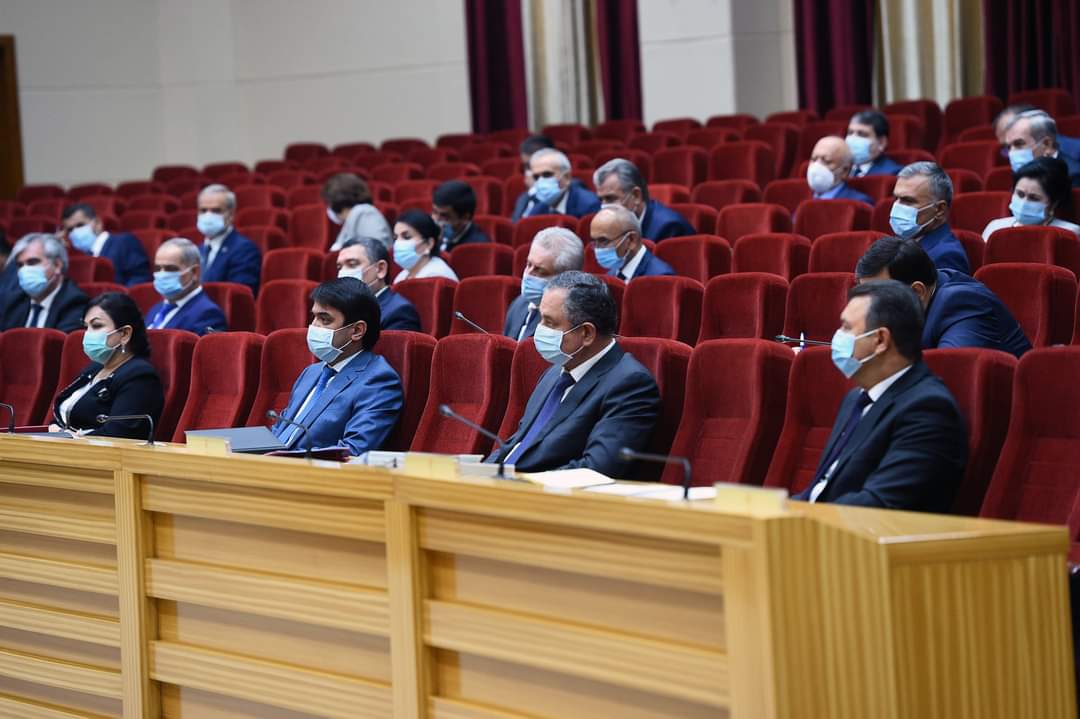A government session, presided over by President Emomali Rahmon, took place in Dushanbe on August 31, according to the Tajik president’s official website.
Speaking at the meeting, Emomali Rahmon reportedly ordered to widely and efficiently use all existing measures to overcome problems and difficulties resulting from the coronavirus pandemic, organize explanatory work among the population on production and storage of food products and observance of sanitary requirements.
The Minister of Agriculture Amonullo Salimzoda reported on the progress of implementation of the seed farming development program designed for 2016-2020.
The main objective of this program is in promoting development of seed farming, strain testing and plant selection.
The head of state also ordered the government and relevant agencies to ensure an on-time payment of wages and pensions, the Tajik president’s official website said.
In Tajikistan, wage debts have reportedly risen 23.5 million somoni in seven months to July 31, reaching 60.6 million somoni (equivalent to some 5.9 million U.S. dollars).
The highest wage debts have been reported in the construction sector – 18.3 million somoni, mining industry – 14.5 million somoni, processing industry – 8.1 million somoni, as well as in the agrarian sector, forestry and fishery – 2.4 million somoni.
The current average monthly wage in Tajikistan is 1,447 somoni (equivalent to 140 U.S. dollars).
The current minimum monthly wage in Tajikistan is 400.00 somoni.
In Tajikistan, the highest average monthly wage has been reported in the financial sector – 3,171 somoni.
The lowest average monthly wage has been reported in the agrarian sector – 523 somoni.
In the territorial cross section, the highest average monthly wage is reported in Dushanbe – 2,045.9 somoni. Dushanbe is followed by the Gorno Badakhshan Autonomous Region (GBAO) – 1,239.4 somoni, Sughd province – 1,221.1 somoni, districts subordinate to the center – 1,149.7 somoni, and Khatlon province – 1,045.5 somoni.




